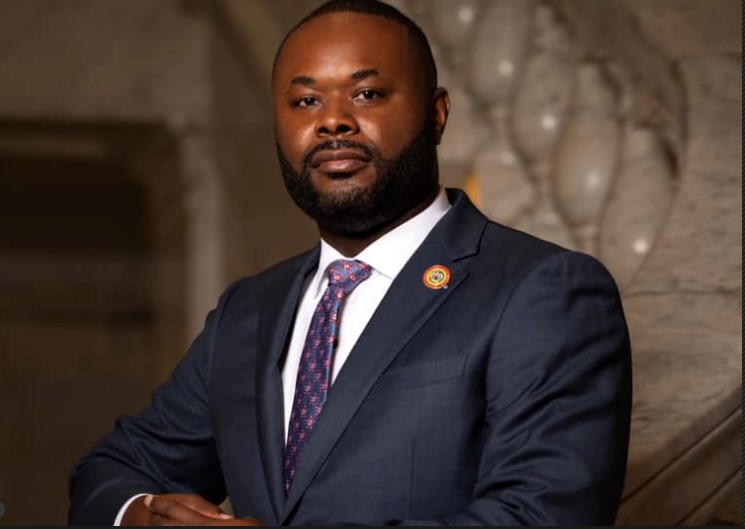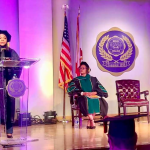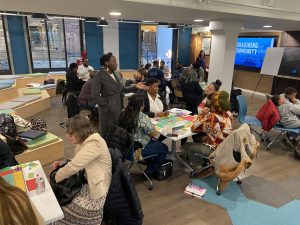By Sen. Corey McCray
Back in April, I received an email from Dr. David Jernigan, a professor at Boston University School of Public Health. Dr. Jernigan informed me about a study published in JAMA Internal Medicine, which examined the impact of Senate Bill 571—legislation I proudly sponsored during the 2020 Legislative Session. The timing of this study is particularly significant as it coincides with the recent passage of similar legislation aimed at further improving public safety in Maryland’s 45th Legislative District.

(Courtesy photo)
The findings were eye-opening, especially for a city like Baltimore, where public safety and combating crime and violence are paramount for every elected official, law enforcement officer, community activist, parent, store owner and taxpaying citizen. Passed in 2020, Senate Bill 571 reduced the operating hours for bars and taverns that sold packaged liquor in East Baltimore. The new operating hours were changed from 6 a.m. – 2 a.m. to 9 a.m. – 10 p.m. This legislation arose from a desperate plea from a neighbor in the Berea Community, who was concerned about a local store that had been the site of two shootings in the first week of October 2019.
Researchers in Boston found that reducing the hours of alcohol sales in this East Baltimore community from 20 hours to 13 hours a day resulted in a 23 percent annual decrease in all violent crime. Violent crime is defined as any incident where the offender uses or threatens to use harmful force against another person, animal, or object. One month after Senate Bill 571 went into effect on July 1, 2020, the community experienced a 51 percent drop in homicides. This was followed by a 40 percent yearly drop in homicides for the community. The study included data from May 1, 2018, to December 2022.
In essence, Senate Bill 571 achieved more than the community, city leaders, and I had hoped for.
Our young scholars deserve to walk to school and play in their community without constant worry from parents and guardians about violence breaking out. What message are we sending to our young people when liquor stores are open at 6 a.m. before the school bell rings at 8:30 a.m., while they are walking to school? Furthermore, all our residents– both young and old– deserve to feel safe in their neighborhood.
The Berea Community, like many others in East Baltimore, has long suffered from the ripple effects of poorly regulated alcohol sales: increased crime, violence and a pervasive sense of insecurity. The legislation was less about regulating liquor sales and more about reclaiming our neighborhoods amidst high crime and violence. No other jurisdiction in the state of Maryland allows liquor establishments to be open for 20 hours a day– so why did Baltimore City?
Building on the success of Senate Bill 571, the C.A.R.E. Community Association and McElderry Park within Maryland’s 45th Legislative District followed in its footsteps with the passage of Senate Bill 45 this year. As the Senate sponsor of Senate Bill 45, I am proud to say that this legislation was signed into law by Gov. Moore on May 16, 2024. I would also like to acknowledge the strong leadership of Del. Jackie Addison, who led the effort in the House of Delegates. This legislation, similar in nature to SB 571, reduces the hours of liquor stores and taverns that sell packaged goods to 9 a.m. until 10 p.m. in both communities. In other words, these establishments cannot operate outside of these hours, further aligning with our efforts to reduce activity that has the potential to lead to crime and improve community safety.
Senate Bill 45 was born out of redistricting (which added both communities to the 45th district), the calls from residents for a safer environment following a rise in violent crime, and the necessity to protect our neighborhoods.
The continued effort to regulate liquor sale hours is a testament to the commitment of our communities and leaders to prioritize public safety and well-being. It’s not just about changing laws; it’s about changing lives. And that’s a responsibility I, and hopefully every policymaker, take very seriously.
While historical disinvestment explains many of the deep-rooted issues our communities face, it’s clear that Senate Bill 571 is not the sole solution to combating all crime. However, I do know that SB 571, along with SB 45, are tools in our arsenal that have proven effective. Both are necessary measures for East Baltimore, and their positive impacts further magnify what can be achieved when we prioritize the safety and well-being of our communities. Let this be a reminder that meaningful change is possible, and it starts with listening to the voices of those we serve.
The post Transforming Baltimore: How smart legislation is making our streets safer appeared first on AFRO American Newspapers.










